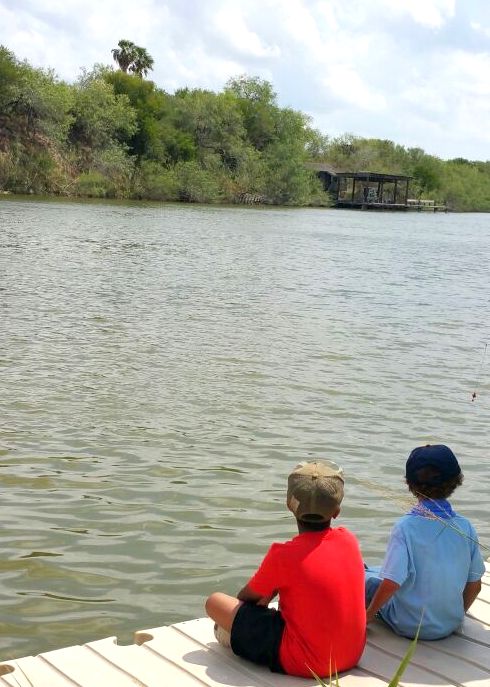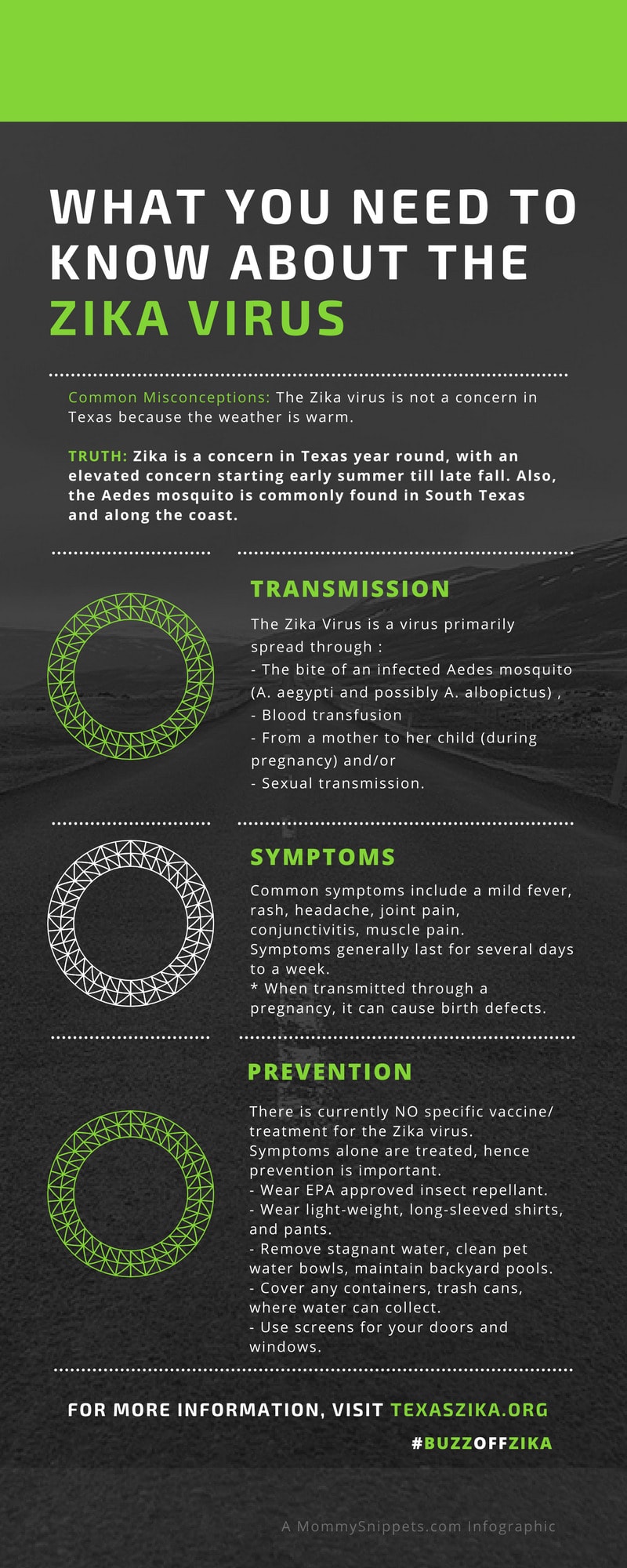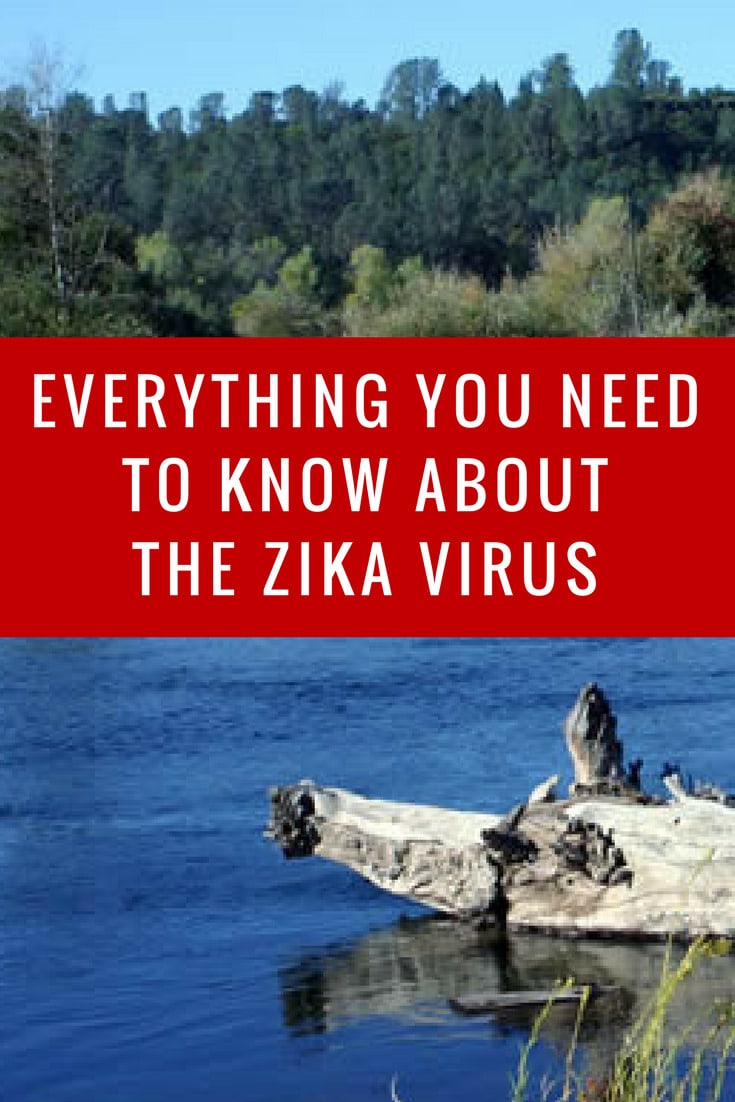What you need to know about the Zika virus (+ An infographic and videos you will want to share!)
This post contains editorial samples and/or affiliate links to products I recommend. While this adds no additional cost to you, I will earn a small commission on any sales made.
What you need to know about the Zika virus
Being in scorching Texas does not make the environment a mosquito free zone. Contrary to that notion, with warmer weather, mosquito season is actually a year-round occurrence for us, thereby making the Zika virus a concern that is understandably prevalent in the minds of many.
As the weather shifts from cooler to warmer, this also means more families will be spending time outdoors especially with Spring break right around the corner. We need to remember that there remains an elevated risk of Zika transmission with warmer weather (yes, all the way to late fall) hence it’s important to take the required precautionary measures for protection, as far as is possible.
These tips will help:
What is the Zika virus?
The Zika virus is primarily spread through the bite of an infected Aedes mosquito (A. aegypti and possibly A. albopictus), most commonly found in South Texas and along the Texas coast.
It can also be spread through blood transfusions, sexual transmission and even from mother to child during pregnancy.
For more information on transmission, read more on http://texaszika.org/transmission.htm and watch this video.
What can I do to protect myself from contracting the Zika virus?
There are several things you can do to keep your family safe:
1. Always wear EPA approved insect repellant (this includes those with DEET) and lightweight, long-sleeved shirts and pants,
especially when you know you will be exposed to an environment where there will be mosquitos.
2. Ensure you don’t have stagnant water lying around inside or outside your house. ( Did you know mosquitos can breed in as little as a tablespoon of water!)
3. Take care to maintain backyard pools and hot tubs.
4. Keep trash containers covered.
5. If you have pets, ensure their water bowls are changed frequently.
What should I do if I visited a Zika hot spot?
To take the required precautionary measures, it’s advised to continue using insect repellent for at least 21 days. If, God forbid, you’ve been infected with the Zika virus, this will help prevent a mosquito from biting you and spreading the virus to your family and community.
For more information on prevention, read more on http://texaszika.org/prevention.htm and if you’re pregnant or currently trying to become pregnant, take these prevention measures to keep you and your baby safe: texaszika.org/pregnantwomen.htm
Pin and share this infographic as many don’t realize the Zika virus is something we need to be careful about.
And again, the TexasZika.org is a great resource hub to learn more.
Don’t give Zika a biting chance!






